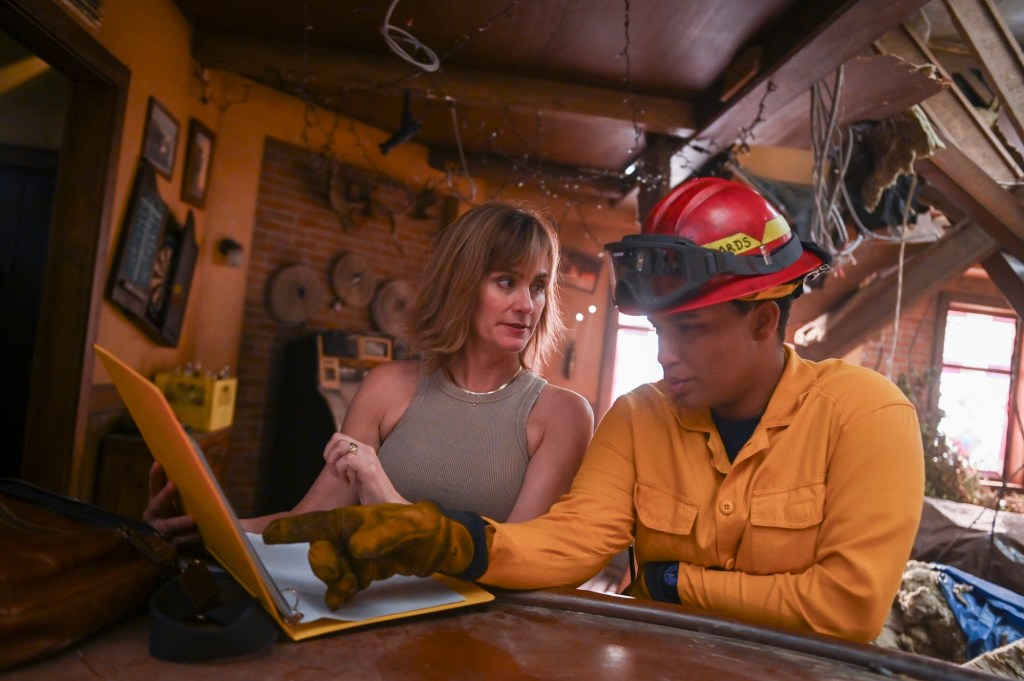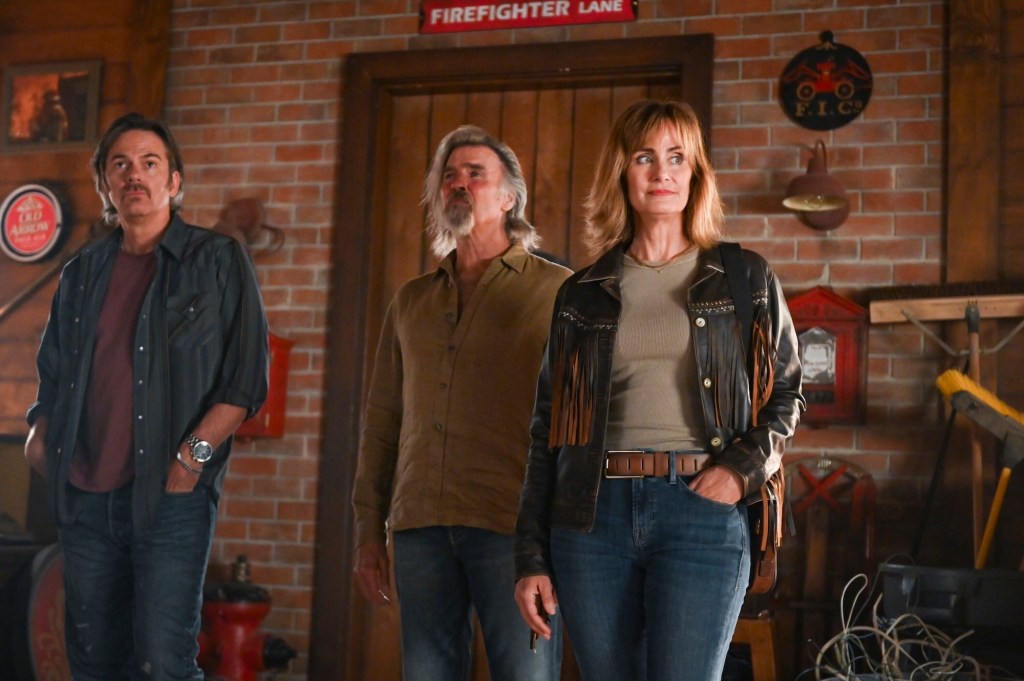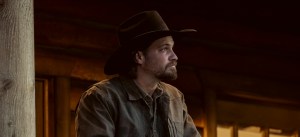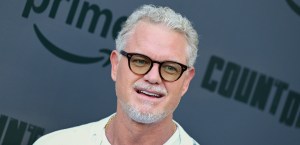Diane Farr is hoping that with the new year comes a major change to production. The Fire Country star has been in the industry for over 30 years now and knows a thing or two when it comes to long production days. Even more so than before after making her directorial debut with Fire Country late last year for Season 3. In a feature for The Hollywood Reporter, Farr, 55, spoke about the dangers to the body, mental health, and even personal relationships of a 50-60-hour work week “and that consistently working beyond a 10-hour day can crumble a home life and the art we come together to make.”
“Sadly, throughout my career, the person yelling ‘cut’ is all too often not able or willing to make key choices before or during filming,” Farr said. “Instead, they use the cast and crew to just capture content and find a story later. My dismay with this version of storytelling is rooted in my experience of making TV and film with only one camera during the first 15 years of my work life. Our previous reliance on just one camera — that also had actual film rolling inside of it — was the reason for 12-hour days. Every angle was shot one at a time. Directors — as well as writers and actors — had to commit to the story we were telling as we shot it since we only ‘printed’ the take going on screen (the film was too expensive to process all of it).”
Videos by PopCulture.com

She went into how she’s seen the perspective of long work days across 10 TV series, having played the lead in sitcoms, single-camera comedies, network, cable, and streaming dramas, and two procedurals. While some had “ideal shooting hours,” she’s also been on shows that “pushed the limits unions allow.” So, when she was shadowing as a director, she learned the ins and outs of shooting and how to advocate when needed. Farr admitted that when she eventually directed, she knew the best way to set up a shot simultaneously, which greatly cut down the time. Most of her days were shot in nine or 10 hours, and her final day was shot in seven, while her “fire” day was shot in 12.
“What if the 12-hour shooting day — or any with a challenging stunt, location, or large group of characters (or all these variables happening simultaneously, which is often the case on our show) was considered overtime rather than a ‘standard workday’? This would require new language and agreements from multiple unions to be negotiated with producers, executives, and buyers,” Farr explained. “Or it could be addressed by just one single guild — the Directors Guild of America. The DGA is reputed to take the best care of its members. (It also has the smallest membership and charges the highest dues.) So, as a new member, I ask my guild: Should 12-hour days be a norm any longer, given our focus on mental health, ending sexual harassment, and concern for physical safety?”

“If adjustments for filming with multiple cameras could be taught, recommended, or even mandated, the goodwill to promote folks with less experience might linger a little longer,” Farr continued. “As it stands, the elevation of anyone to the role before they are ready isn’t just expensive for that episode and production, it is also costly to that director’s future. Those who exhaust human and monetary resources by overshooting are not quick to be rehired. Failing to educate newcomers on ways to work efficiently, that also keep health and safety top of mind, could set all of us back further than ever.”
No matter what profession, over 12 hours is certainly a long and draining day, especially if those 12 hours turn into 16 and so on, and for actors and crew members, it can take a toll. Since it is certainly possible to have a shooting day that is less than 12 hours, perhaps more directors will follow in her lead and try to make it happen. The fact that it was her directorial debut, and she’s already thinking like this says a lot. And one can hope that something changes soon. In the meantime, fans can see Diane Farr on Fire Country when the show returns on Friday, Jan. 31 at 9 p.m. ET on CBS.
Most Viewed
-

“Zone of Death” – As Kayce tries to embrace his new beginning, a Marshals op to stop a domestic terror attack lands him in a valley of buried Dutton family skeletons. While confronting his past, he must also learn to ingratiate himself with his new Marshals teammates, on MARSHALS, Sunday, March 8 (8:00-9:00 PM, ET/PT). Pictured: Luke Grimes as Kayce Dutton. Photo: Sonja Flemming/CBS ©2025 CBS Broadcasting, Inc. All Rights Reserved.







